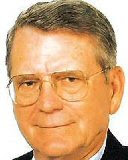Comments
on: America’s Bright Future, an
article by Victor Davis Hanson.
Full
disclosure: I am not an academician or
scholar with the credentials of Dr. Hanson, but I have done extensive reading
on the matter about which I will comment.
If interested in further insight on the point of view addressed in the
following narration, I recommend writings of Herbert Striner PhD, former Dean
of the Kogod School of business American University. In particular, I recommend his book; Regaining the Lead: Policies for Economic
Growth. (1987) Dr. Striner is a
personal friend dating back of many years.
He was a regular speaker/presenter at executive training programs I
facilitated for IBM during the 1980s. I was invited to make comments on the
draft of his book.
I cannot
fully support the optimistic views expressed in Dr. Hanson’s paper since they
do not consider, or least do not state the significant influence on scio-economic
development by factors dealt with in Dr. Striner’s books, lectures and “white
papers”, factors with which I fully agree are extremely important. These factors, explained in great detail by
Dr. Striner include the impact on American wellbeing by the culture (religion,
wealth, education, childhood ethical inculcation, etc.) the experience of those
involved, and the political environment extant when Dr. Hanson’s posits come
into play.
Dr. Hanson’s
belief that, notwithstanding the talk of gloom and doom--the decline of
America—this country is the leader in almost any category one might place
us. America is politically stable, produces
enough foodstuffs to satisfy much of the world including our own, our military
keeps our enemies at bay and could readily become energy independent with a
minimal political shift in policy. But,
with shifts in attitudes and the reemergence of many of our prejudices and
fears, all of the foregoing could become almost meaningless. Evidence already exists to that effect. We produce more coal, oil and natural gas to
supply all our needs, but because of the fear of many that we are polluting our
atmosphere, we do not take full advantage of these resources. Instead, we spend a great deal of our time
and money trying to comply with “green” rules from the Environmental Protection
Agency and from pressures generated by countless well-meaning, but economically
illiterate organizations. Our
attitudinal shift from basic Christian principles on which America was founded
(per the Declaration of Independence and the Constitution) to that of
previously intolerance of those bent on our downfall. Finally, our changing views on the role of
government in the area of universal welfare has led us to monumental debt,
uncountable governmental rules and regulations, depletion of our military strength, conscious
relinquishment of our leadership roles in the international arena and our
failure to maintain the high educational standards of earlier generations. We tolerate the dissolution of the family
values that accept children born out of wedlock, all-time high divorce rates,
abandonment of family discipline that bleeds over into the school system and
indeed into adherence to our laws.
Having all
the natural resources we need, being the most economically sound of any country
in the world, leader in science, industry and medicine and militarily powerful
enough to deter almost all aggression may be of diminishing value with the lack
of the will of our citizens to maintain moral, ethical standards and a
willingness to make economic tradeoffs to ensure our prominence in those fields
where we presently are leaders.
There’s a
generally accepted adage based on psychology that says: Whenever logic and emotion confront, emotion
always wins.
